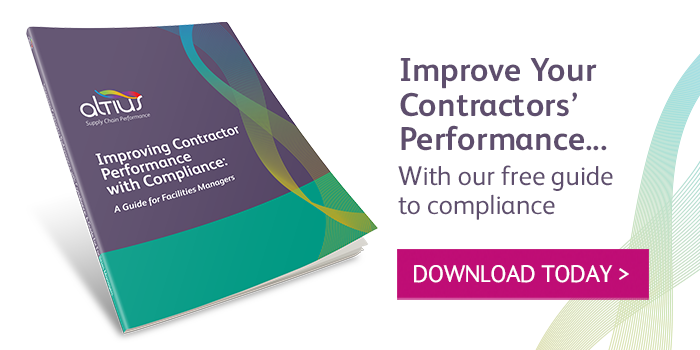
There are many ways of managing your suppliers and contractors effectively– as you’ll probably know from searching online. But just how many of those ‘software solutions’ that you come across will give you full control of your contractors, whilst being efficient and easy to use?
We know that in a business, you need to always be in total control of your contractors and have full visibility of what is going on and how they are doing – while also being efficient. Time is money after all. So we have designed our software, Altius Exigo with your challenges in mind – here are more details on how we can end your supplier and contractor management headaches.
Control
Rather than spending a lot of your time managing your contractors through spreadsheets and questionnaires, let the software do the work. Altius Exigo is a smarter contractor management tool and is able to work more efficiently than the spreadsheets that you’re probably using.
Discover the all-in-one contractor management software >
And should you need to implement any changes due to an alteration in circumstance with your suppliers and contractors, the introduction of these into the Exigo software is simple and in your control. Which is better than searching through lines and lines of data in your spreadsheet – changes would also be visible to your contractors, so you’re always on the same page.
Plus, if at any time, a job with your contractors goes wrong for any reason – it is important that you’re in a position where you can say how and why. With the Exigo software, everything that you do with your contractors is tracked automatically. From this, you can access the status of any supplier or contractor, from any point in time, along with evidence and rationale for decisions made, which will help you should you ever need it.
Efficiency
Managing, assessing and just keeping on top of your contractors, we know can be extremely time-consuming, so why not invest in something that is more efficient if the option is there?
Ask yourself, how much extra time would you have to spend on other tasks that need your attention if you were released from the day-to-day managing of your suppliers and contractors? That is what Exigo Essentials can do for you – the software handles the day-to-day routine so that you can concentrate your efforts where they are needed.
As the Exigo Essentials system is designed and implemented by Altius you will have access to our Altius Eco-System which means that you can benefit from our knowledge and experience with managing problems, should you ever need it.
Transparency
Making any changes to contractor information or requirements from a project, however minimal, can often seem like a nightmare for the person who has the job of communicating these amendments to all parties involved.
Using Exigo Essentials can take away this nightmare by giving you and your contractors a mutual platform for collaboration, ensuring that you both have an understanding of what is required, which helps everyone communicate that they are committed to producing a service that meets expectations. Therefore strengthening your relationships with contractors.
Being able to access accurate information about any of your contractors and real-time reporting is also a feature of Exigo. Being able to view up-to-date supplier and contractor information can highlight any weaker points that may exist and potential issues, allowing you to resolve them before they can turn into a risk to your business.
Altius Exigo
Interested in Exigo Essentials? Sign up today to get a free demo of the tool in action so that you can see first hand, just how much of a difference investing in Exigo Essentials would make to you.










